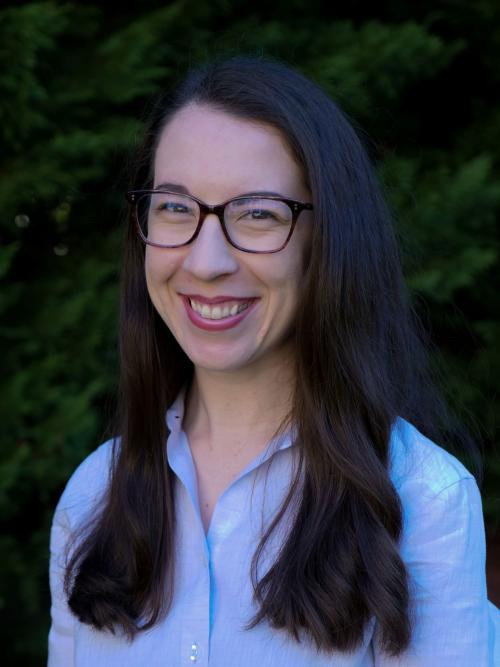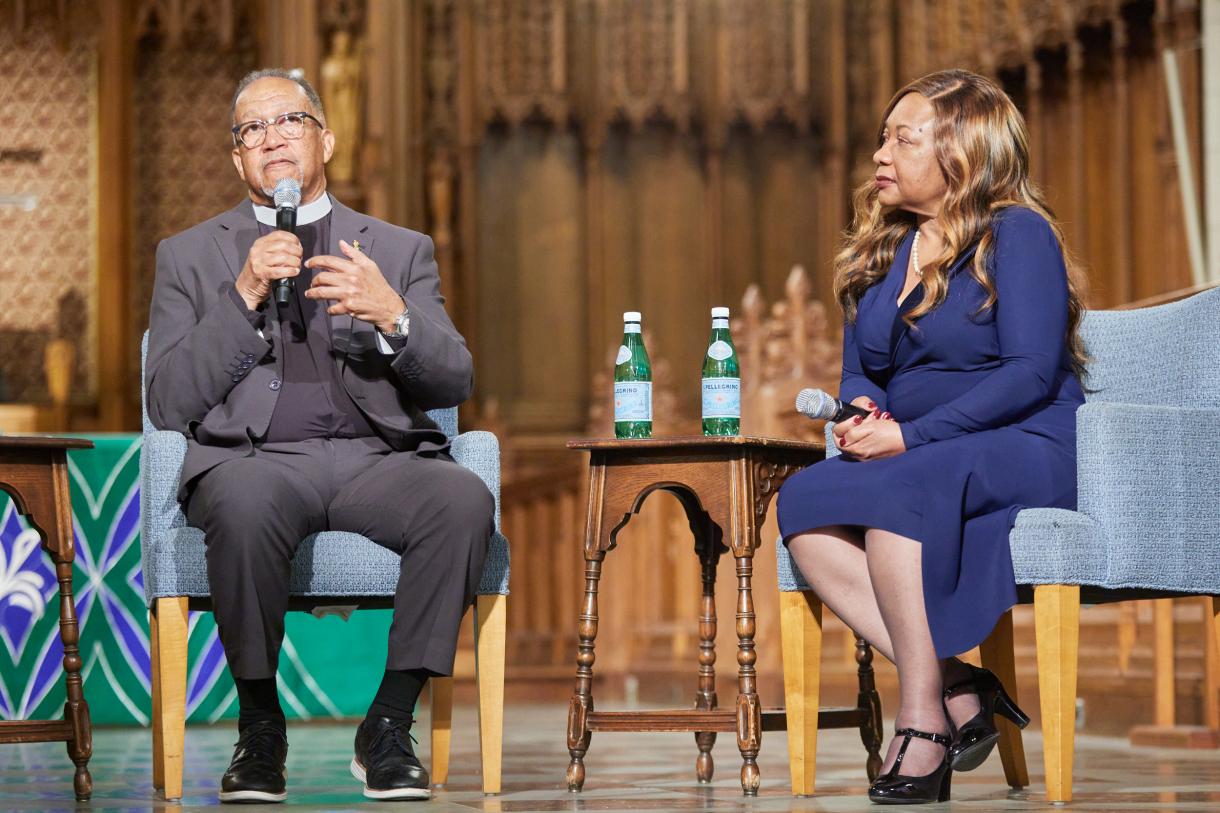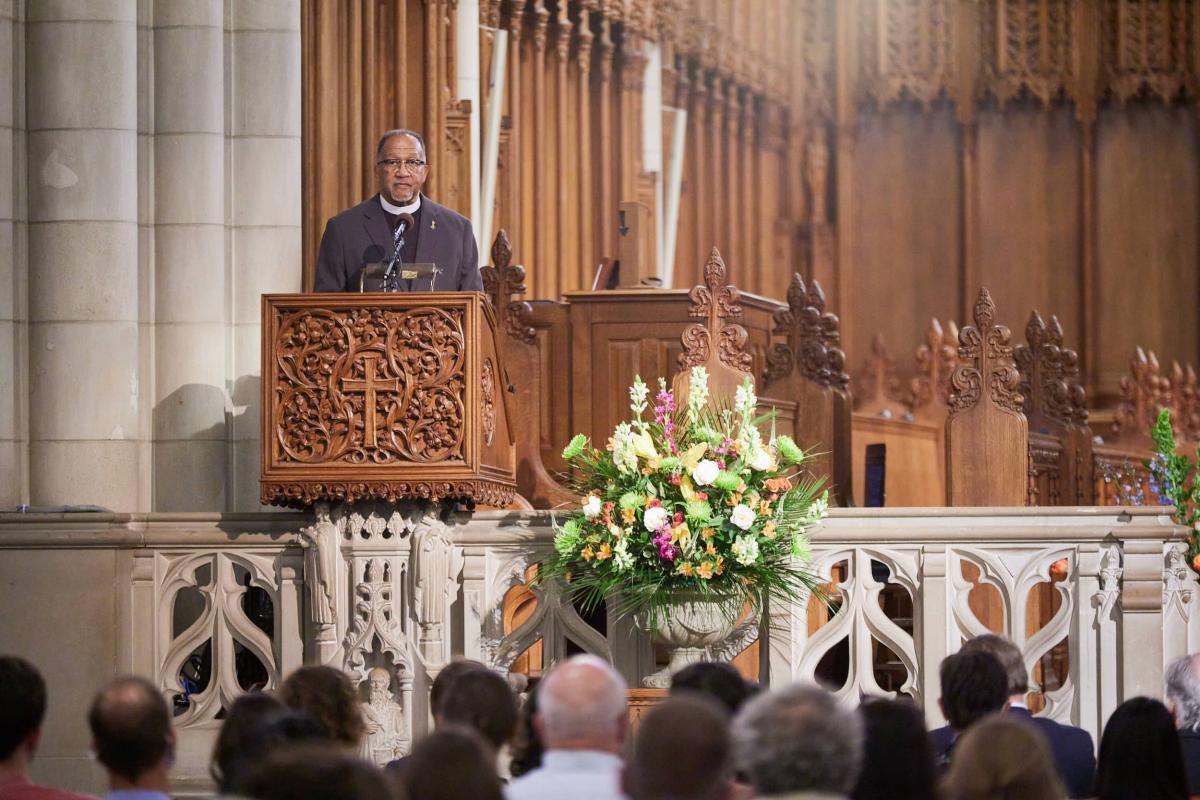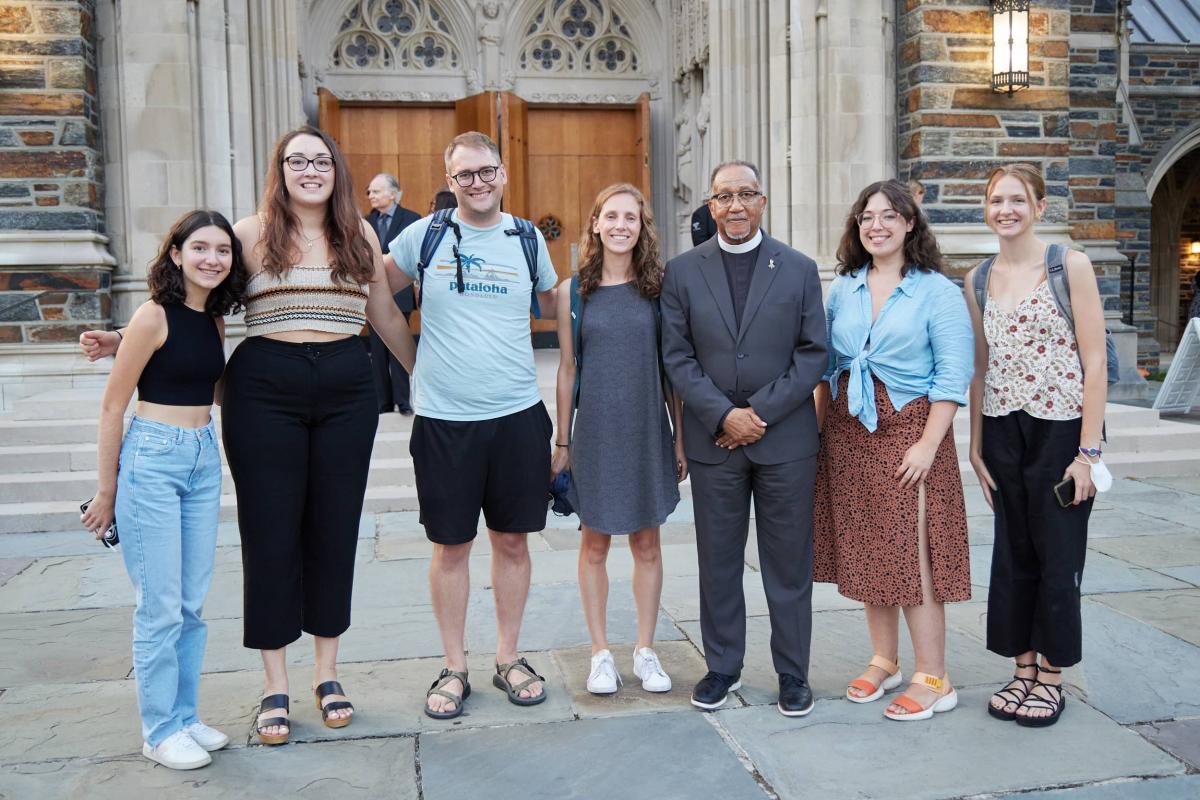
By Karina Hendren MPP’23

“We have work to do.” This was the electrifying charge given by Rev. Dr. Benjamin F. Chavis, Jr. to commemorate the 40th anniversary of the Warren County protests in North Carolina, a key event in the history of the environmental justice movement.
On Sept. 15, Chavis and Catherine Coleman Flowers discussed the past, present and future of environmental justice during the Robert R. Wilson Distinguished Lecture. Attendees witnessed a historic and intergenerational conversation on the accomplishments and challenges of the environmental justice movement.
Chavis shared his firsthand experience with the 1982 protests against the creation of a hazardous waste landfill in Warren County, which at the time was the most predominantly black of all counties in North Carolina. Chavis was arrested during the protest. During his time in jail, reflected that the landfill was an environmental wrong that was tantamount to environmental racism. This realization led him to coin the term “environmental racism” and made him a legend of the environmental justice movement.
The protests were only the beginning. Chavis noted that the national media attention focused on the Warren County protests revealed that this type of injustice was not isolated. This motivated him to help author “Toxic Wastes and Race,” a landmark study funded by the United Church of Christ that demonstrated a correlation between the location of toxic waste facilities and communities of color in the United States. Chavis explained that the environmental justice movement grew because communities nationwide, including Warren County, joined together to build a movement.
40 years after the protest in Warren County, Chavis highlighted the ways in which the environmental justice movement is now global. The COVID-19 pandemic demonstrated that the wellbeing of all communities is interrelated. Chavis said he feels optimistic because people worldwide increasingly see the connections between health, environment and public policy.
Looking towards the future, Chavis expressed gratitude for the growth of the movement and urged academic institutions, including Duke, to focus on the issues of environmental and climate justice. He stated that young people must be encouraged and given a helping hand to avoid repeating history. This resonated with me as a Duke student engaged in environmental policy. I have been encouraged by Duke’s events throughout the month of September to help shape the future of the environmental justice movement.

Photo credit: Duke Sanford School of Public Policy
The event then transitioned to a conversation between Chavis and Flowers, moderated by Cameron Oglesby, one of my classmates in the MPP program at the Sanford School. Chavis and Flowers are motivated by the desire to ensure a livable environment for future generations, including their own grandchildren and great-grandchildren. Chavis noted that society sometimes underestimates what young people can do. He has hope that younger generations will learn from his generation’s experiences and build upon what they accomplished.

Regarding the present state of environmental justice, Oglesby inquired about the Biden Administration’s recent decision to exclude race as an indicator in the rollout of an environmental justice screening tool. Flowers stated that she supported this decision because she was concerned that the Supreme Court would delay the rollout, and hence pollution cleanup efforts, if race was included as an indicator. Chavis agreed that activists must be strategic in the pursuit of ending racism. This struck me as a direct application from one of my current courses at the Nicholas School of the Environment: “Environmental Justice: Theory and Practice for Environmental Scientists and Policy Professionals.” Dr. Ryan E. Emanuel, the course instructor, has emphasized that data is not necessarily a silver bullet. Decisionmakers can take advantage of data as a tool of either progress or stagnation in the name of environmental justice.
On future strategies, both Flowers and Chavis expressed their support for public-private partnerships. Duke President Vincent Price and Dr. Chavis recently discussed a vision to make Duke a center for climate and climate justice, including the Durham and Triangle communities. Flowers stressed the importance of creating partnerships with black and brown engineers, as well as locating new technologies and manufacturing plants in an equitable way.
The discussion left me with a strong sense of optimism. To see that Chavis and Flowers have remained dedicated to environmental justice, despite the obstacles they have faced, is a testament to the fulfilling and energizing nature of their work. I am confident that younger generations will carry their legacy forward. As Chavis stated, we have work to do!
Karina Hendren is a current second-year Master of Public Policy student at the Sanford School of Public Policy at Duke. She received her bachelor’s degree in Public Policy Studies from the University of Chicago in 2016. She then worked for five years as an Environmental Communications Coordinator at Eastern Research Group. Her undergraduate and professional work focused on residential water use policy. At Duke, she is transitioning to a focus on energy policy, and has welcomed the opportunity to take several classes at the Nicholas School of the Environment. She recently served as an Environmental Defense Fund Climate Corps Fellow working with the Town of Chapel Hill, NC on municipal vehicle fleet electrification.
Featured Video
Environmental Justice: Past, Present and Future
Documenting the Warren County Protests
What started as a mass protest against the dumping of toxic PCBs in Black neighborhoods in rural Warren County is now seen as one of the starting points of the environmental justice movement that is a strong voice in contemporary America. Duke alumna Jenny Labalme documented the 1982 protests as a student.




